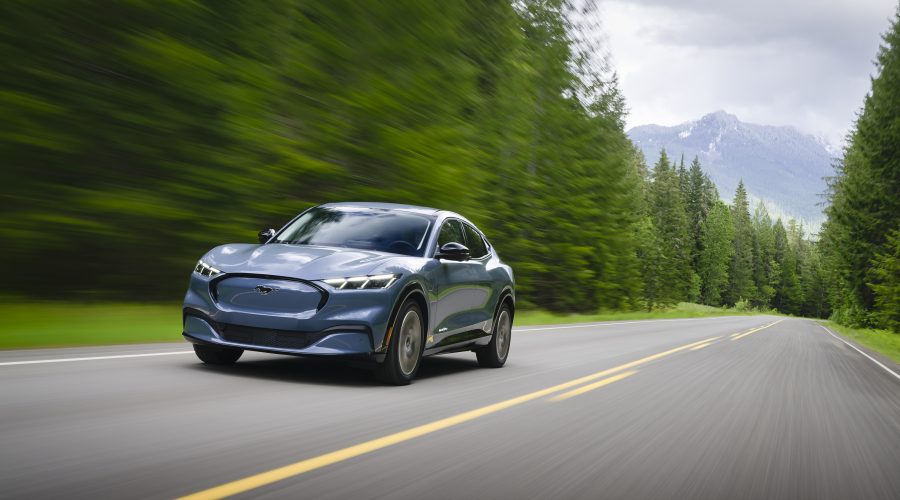The Ford Mustang, a name synonymous with American muscle and performance, has entered a new era. Alongside the roaring V8-powered icon, there’s now the Mustang Mach-E, a sleek and powerful electric SUV that’s challenging the status quo. In the U.S., the Mach-E has made a significant impact, even outselling its gas-powered counterpart in certain periods. But will this trend translate to the Canadian market?
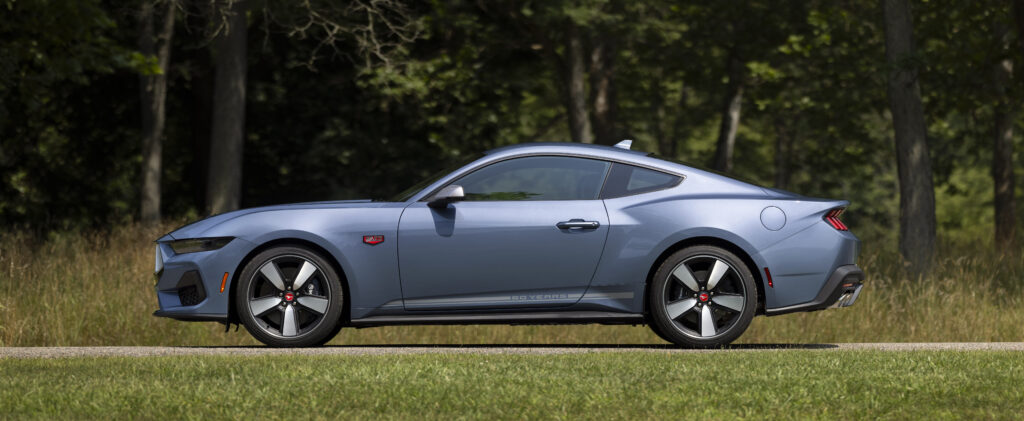
Mustang Mach-E: A Sales Success Story
The Mustang Mach-E’s arrival was met with both excitement and scepticism. Could an electric SUV truly live up to the Mustang legacy? In the U.S., the answer seems to be a resounding yes. In 2024, Ford sold over 88,000 Mustang Mach-Es, surpassing the gas-powered Mustang’s sales of 44,003.
This success can be attributed to several factors. The U.S. offers generous federal tax credits for electric vehicle purchases, making EVs more affordable. There’s also been significant investment in expanding EV charging infrastructure, making it easier for EV owners to find charging stations. Furthermore, American consumers are increasingly embracing electric vehicles due to environmental concerns, rising gas prices and the desire for advanced technology.
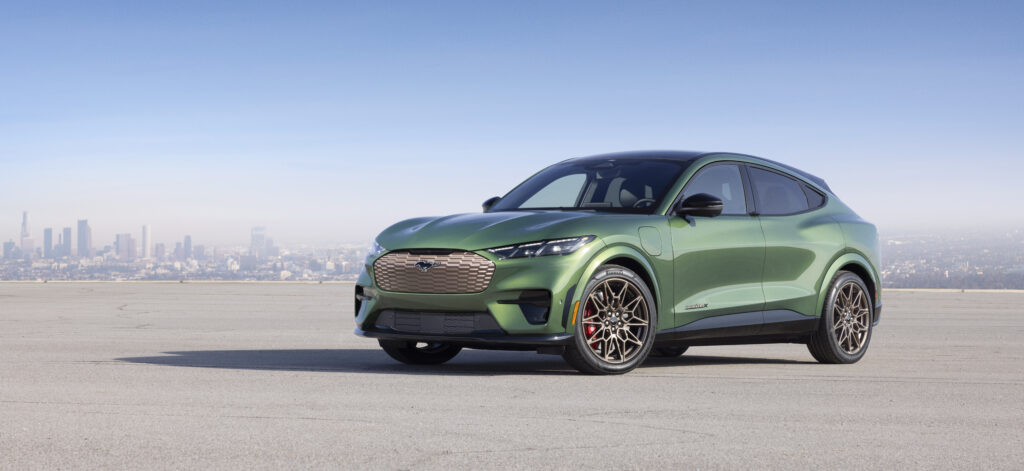
The Canadian EV Landscape
While Canada shares some similarities with the U.S. in terms of EV adoption, there are also key differences. While Canada offers some provincial and federal incentives for EV purchases, they are generally less generous than those in the U.S. The federal iZEV program offered a maximum rebate of $5,000 for eligible EVs, but it has been paused indefinitely because the funds for the program have been depleted. Some U.S. states offer rebates of up to $7,500.
Canada lags behind the U.S. in charging infrastructure, particularly in less populated areas. While there are nearly 33,000 public charging ports in Canada, this number needs to increase significantly to meet the growing demand. The distribution of charging stations also varies across provinces, with Ontario, British Columbia and Quebec having the most extensive networks.
Finally, Canadian consumers are increasingly interested in EVs, though range anxiety, charging time and vehicle cost remain concerns. A recent survey found that half of British Columbians are concerned about the province’s mandate to require 100% zero-emission vehicle sales by 2035.
Mustang Mach-E in Canada
The Mustang Mach-E has been well-received in Canada, earning praise for its performance, technology and styling. However, its sales haven’t yet reached the same level as the U.S. In 2024, Ford sold approximately 5,000 Mustang Mach-Es in Canada, compared to around 8,000 gas-powered Mustangs. This difference can be attributed to the factors mentioned above, as well as the strong loyalty to the traditional Mustang among Canadian car enthusiasts.
Popular EV Alternatives in Canada
The Mustang Mach-E faces competition from several other popular EVs in the Canadian market. The Tesla Model Y is known for its long range and advanced technology. The Hyundai Ioniq 5 offers a unique design, spacious interior and fast charging capabilities. The Kia EV6 boasts sporty performance, a stylish design and a long-range option. The Volkswagen ID.4 provides a practical and affordable option for those seeking a compact electric SUV.
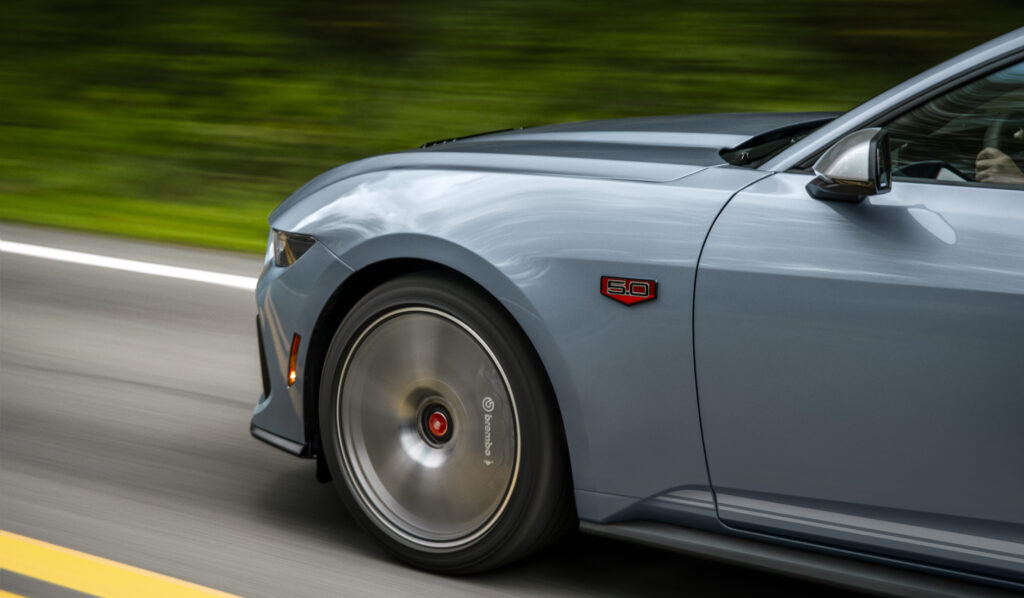
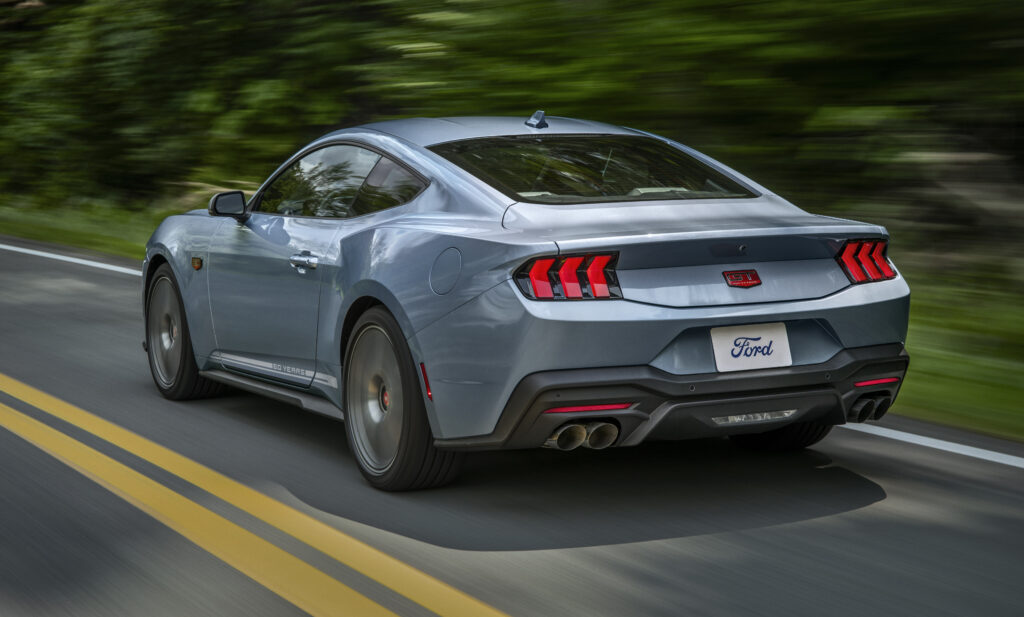
The Future of Mustang: Electric vs. Gas
Will the Mustang Mach-E eventually outsell the gas-powered Mustang in Canada? It’s a complex question with no easy answer. However, increased government incentives and investment in charging infrastructure could accelerate EV adoption in Canada. Initiatives like the federal government’s commitment to fund 84,500 new charging stations are a step in the right direction.
Continued high gas prices could also make EVs more attractive to cost-conscious consumers. The introduction of more affordable Mustang Mach-E trims could broaden its appeal. And as EVs become more mainstream and charging infrastructure improves, consumer confidence in electric vehicles is likely to increase.
While the Mustang Mach-E might not immediately replicate its U.S. success in Canada, the trend towards electric vehicles is undeniable. As technology advances and consumer preferences evolve, the Mustang Mach-E has the potential to become a dominant force in the Canadian automotive landscape, even potentially surpassing its gas-powered sibling in the years to come. Ford has already announced plans for a second-generation Mach-E in 2026, along with a coupe version, indicating its commitment to the electric Mustang’s future.
What are your thoughts on the Mustang Mach-E? Do you think it will outsell the gas-powered Mustang in Canada?
David Lemon is a seasoned 15-year leader in the automotive industry with extensive experience in sales and franchise development at OK Tire, Mister Transmission and Enterprise-Rent-a-Car. David leverages his expertise to help businesses seamlessly integrate AI solutions into their growth strategies. Connect with David on LinkedIn.

